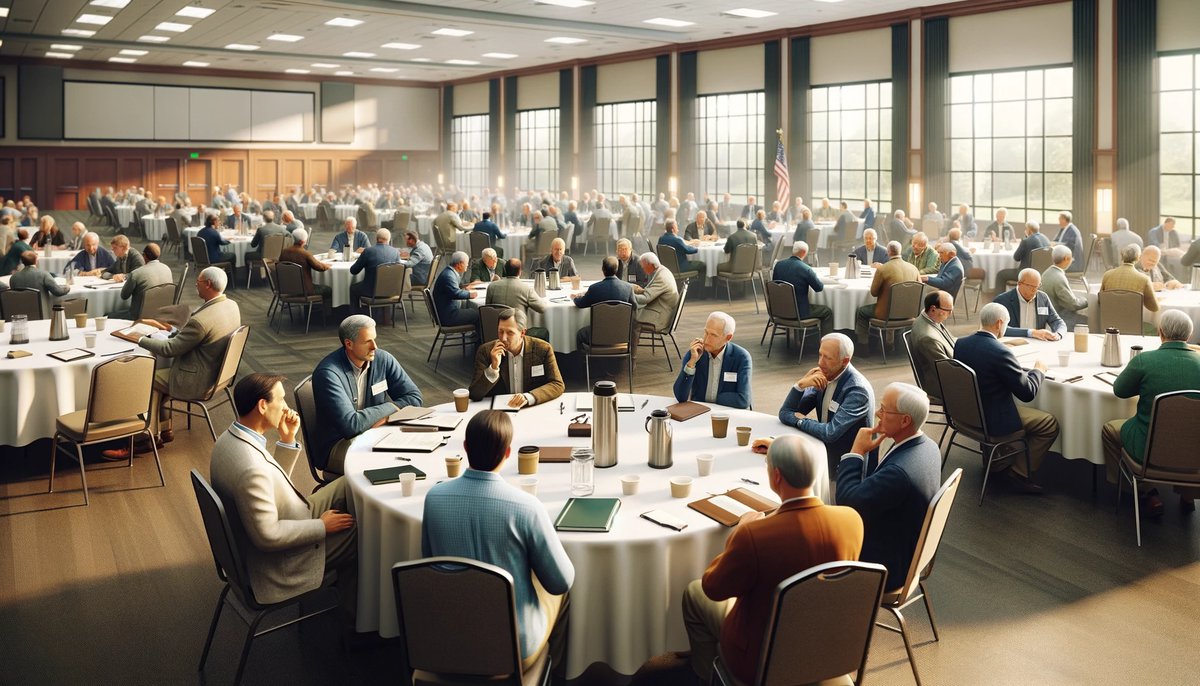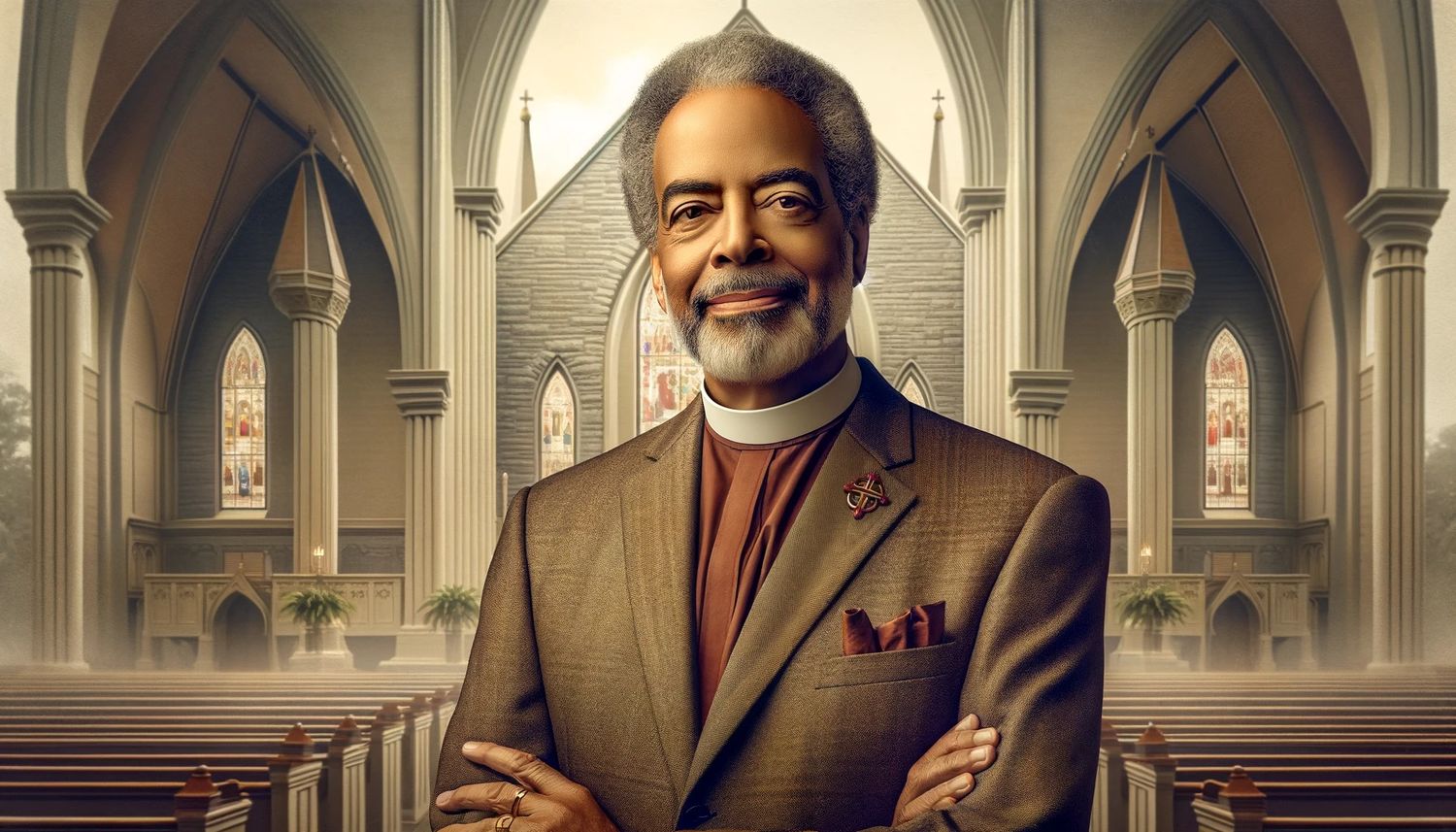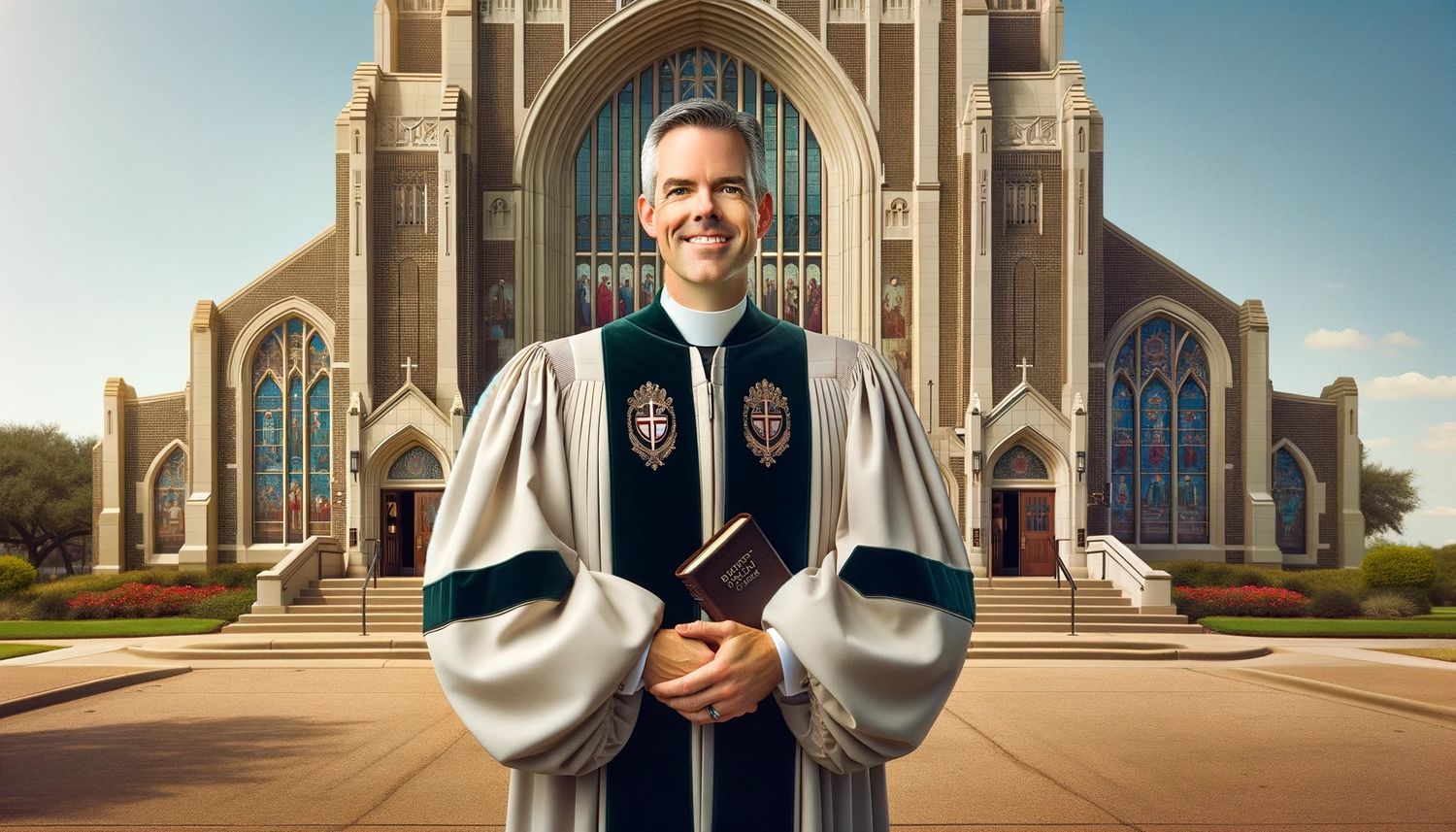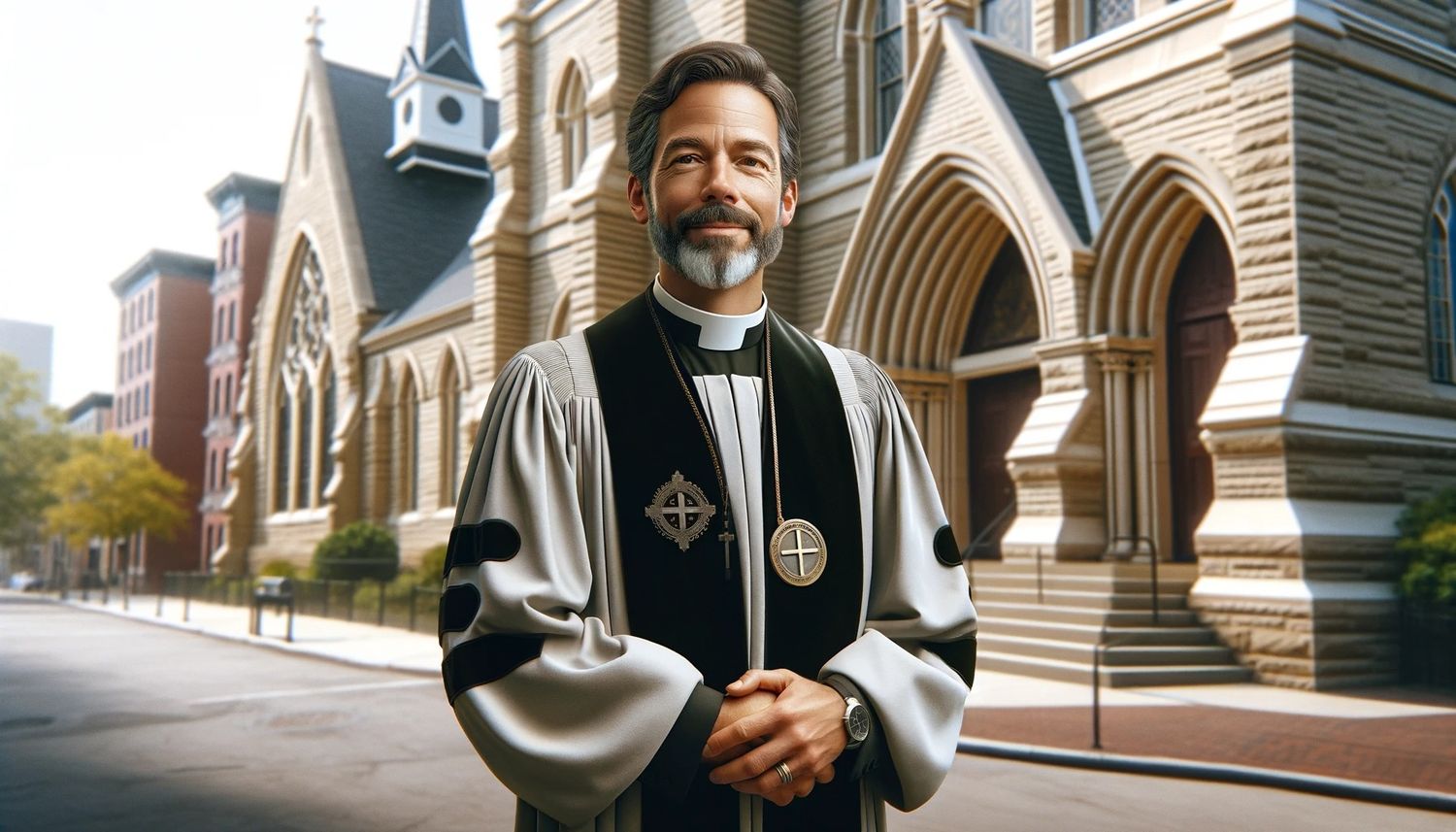Home>Theology and Spirituality>In A Baptist Church Who Can Perform Baptisms


Theology and Spirituality
In A Baptist Church Who Can Perform Baptisms
Published: February 23, 2024
Peter Smith, Editorial Director at Christian.net, combines deep insights into faith, politics, and culture to lead content creation that resonates widely. Awarded for his contributions to religious discourse, he previously headed a major organization for religious communicators, enhancing dialogue on faith's societal impacts.
Discover who can perform baptisms in a Baptist church and the theological significance. Explore the role of pastors, elders, and deacons in this important sacrament. Learn more about theology and spirituality.
(Many of the links in this article redirect to a specific reviewed product. Your purchase of these products through affiliate links helps to generate commission for Christian.net, at no extra cost. Learn more)
Table of Contents
Introduction
Baptism holds a significant place in the life of a Baptist church. It is a sacred ritual symbolizing the believer's identification with the death, burial, and resurrection of Jesus Christ. In a Baptist church, the question often arises: who can perform baptisms? Understanding the roles of different individuals within the church in the context of baptisms is crucial for maintaining the sanctity and significance of this spiritual practice.
The process of baptism is not only a personal declaration of faith but also a communal affirmation of the individual's commitment to Christ and the church. Therefore, it is essential to explore the roles of various members of the church, including the pastor, deacons, other church members, and even visitors or guests, in the administration and participation of baptisms. Each role contributes to the spiritual and communal significance of the baptismal experience, creating a sense of unity and shared faith within the church community.
As we delve into the intricacies of who can perform baptisms in a Baptist church, it becomes evident that this practice is not merely a ceremonial act but a deeply meaningful expression of faith and fellowship. Understanding the roles and responsibilities of different individuals in the context of baptisms enriches our appreciation for the spiritual interconnectedness that defines the Baptist faith community. Let's explore the unique contributions of each church member in the sacred journey of baptism, illuminating the beauty of shared faith and communal celebration.
Read more: Does It Matter Who Performs A Baptism
The Role of the Pastor in Baptisms
The pastor plays a pivotal role in the administration and significance of baptisms within a Baptist church. As a spiritual leader and shepherd of the congregation, the pastor's involvement in the baptismal process is multifaceted and deeply impactful.
-
Spiritual Guidance and Preparation:
The pastor serves as a spiritual guide for individuals seeking baptism, providing counsel, support, and instruction on the significance of this sacred act. Through pastoral care and biblical teaching, the pastor helps candidates understand the spiritual commitment involved in baptism, ensuring that they are prepared to publicly profess their faith in Christ. -
Administration of Baptism:
In most Baptist churches, the pastor is authorized to perform baptisms. This responsibility involves the actual immersion or affusion of the candidates, symbolizing their union with Christ in His death and resurrection. The pastor's role in administering baptism underscores their spiritual authority and pastoral care for the congregation. -
Teaching on Baptism:
Beyond the act of baptism itself, the pastor often delivers sermons or teachings on the theological significance of baptism, elucidating its biblical foundations and spiritual implications. This educational aspect of the pastor's role fosters a deeper understanding of baptism among the church members, reinforcing its importance within the faith community. -
Celebration and Communal Witness:
As the shepherd of the flock, the pastor celebrates and affirms the baptisms within the church community. This public affirmation not only acknowledges the candidates' commitment to Christ but also serves as a communal witness, inspiring and encouraging other believers in their faith journey. -
Continued Discipleship:
Following baptism, the pastor continues to provide spiritual guidance and support to the newly baptized individuals, nurturing their growth as disciples of Christ. This ongoing discipleship underscores the pastor's commitment to the spiritual well-being of the congregation, ensuring that the impact of baptism extends beyond the ceremonial event.
In essence, the pastor's role in baptisms encompasses spiritual guidance, administrative authority, theological instruction, communal celebration, and ongoing discipleship. Through these multifaceted responsibilities, the pastor contributes significantly to the spiritual vitality and communal unity of the Baptist church, fostering a culture of faith, growth, and shared commitment to Christ.
The Role of Deacons in Baptisms
Deacons play a vital role in the baptismal process within a Baptist church, contributing to the spiritual and logistical aspects of this sacred rite. Their involvement reflects the communal nature of baptism and underscores the significance of shared ministry within the church community.
-
Logistical Support: Deacons often provide essential logistical support for baptisms, ensuring that the necessary arrangements are in place for the ceremony. This may include preparing the baptismal pool or arranging the space for baptisms to take place, ensuring that the environment is conducive to the sacred nature of the ritual.
-
Assistance During Baptisms: Deacons may assist the pastor during the actual administration of baptisms, offering support as candidates are immersed or baptized by affusion. Their presence provides a sense of communal participation, symbolizing the unity of the church body in upholding and affirming the candidates' commitment to Christ.
-
Spiritual Encouragement: Deacons often play a role in providing spiritual encouragement and support to individuals preparing for baptism. Their presence and guidance can offer reassurance and affirmation to candidates as they embark on this significant step in their faith journey.
-
Communal Witness: As representatives of the church community, deacons serve as witnesses to the baptisms, affirming the candidates' public declaration of faith. Their participation underscores the communal nature of baptism, emphasizing the shared commitment of the church body to upholding and nurturing the faith of its members.
-
Continued Support: Following baptisms, deacons continue to offer support and care to the newly baptized individuals, integrating them into the life of the church and providing ongoing spiritual guidance. This post-baptismal support reflects the deacons' commitment to nurturing the spiritual growth and well-being of the entire congregation.
In essence, the role of deacons in baptisms encompasses logistical support, communal participation, spiritual encouragement, communal witness, and continued care for the baptized individuals. Their involvement underscores the interconnectedness of the church body and the shared responsibility of nurturing and affirming the faith of its members. Through their multifaceted contributions, deacons enrich the baptismal experience, fostering a sense of communal celebration and spiritual unity within the Baptist church.
The Role of Other Church Members in Baptisms
In a Baptist church, the participation of other church members in the baptismal process is integral to the communal and spiritual significance of this sacred rite. While the pastor and deacons play specific roles in the administration of baptisms, the involvement of other church members enriches the communal experience and reinforces the shared commitment to nurturing the faith of the entire congregation.
-
Prayer Support: Other church members contribute to the baptismal journey through fervent prayer. Their intercession upholds the candidates, the pastor, and the deacons, seeking spiritual guidance, strength, and a profound sense of God's presence during the baptismal ceremony. This prayer support creates a spiritual atmosphere of unity and reverence, underscoring the communal nature of the baptismal experience.
-
Encouragement and Celebration: Church members offer vital encouragement and celebrate the decision of individuals being baptized. Their words of affirmation and support convey a sense of communal joy and solidarity, reinforcing the significance of the candidates' public declaration of faith. This communal celebration fosters an environment of love and encouragement, affirming the shared commitment to walking alongside fellow believers in their faith journey.
-
Communal Witness: As witnesses to the baptisms, other church members play a crucial role in affirming the candidates' commitment to Christ. Their presence during the ceremony symbolizes the communal affirmation of faith, emphasizing the interconnectedness of the church body in upholding and nurturing the spiritual growth of its members. This communal witness underscores the shared responsibility of the entire congregation in supporting and affirming the faith of those being baptized.
-
Post-Baptismal Support: Following the baptisms, church members extend ongoing support and care to the newly baptized individuals. This may involve integrating them into various church ministries, providing mentorship, and fostering meaningful relationships within the church community. The collective support of church members contributes to the seamless integration of the newly baptized individuals into the fabric of the church, nurturing their spiritual growth and fostering a sense of belonging within the community of believers.
In essence, the role of other church members in baptisms encompasses prayer support, encouragement and celebration, communal witness, and post-baptismal care. Their collective involvement enriches the baptismal experience, fostering a culture of communal support, spiritual unity, and shared commitment to nurturing the faith of all members within the Baptist church community.
The Role of Visitors or Guests in Baptisms
Visitors or guests attending baptisms in a Baptist church play a significant role in contributing to the spiritual atmosphere and communal affirmation of the candidates' public declaration of faith. While they may not hold formal positions within the church, their presence enriches the baptismal experience and underscores the interconnectedness of the broader Christian community.
Read more: How To Perform An LDS Baptism
Communal Witness and Encouragement
Visitors and guests serve as witnesses to the baptisms, affirming the candidates' commitment to Christ and their public proclamation of faith. Their presence during the ceremony symbolizes the broader Christian community's support and affirmation of the spiritual journey undertaken by the individuals being baptized. This communal witness fosters an environment of encouragement and celebration, conveying a sense of unity and shared faith among believers from diverse backgrounds.
Spiritual Engagement and Intercession
Visitors and guests often engage in fervent prayer during baptisms, seeking spiritual guidance, strength, and a profound sense of God's presence for the candidates, the pastor, and the entire congregation. Their intercession creates a spiritual atmosphere of unity and reverence, underscoring the communal nature of the baptismal experience. Through their prayers, visitors and guests contribute to the spiritual vitality of the ceremony, affirming the significance of the candidates' decision to publicly declare their faith in Christ.
Welcoming and Hospitality
Visitors and guests extend hospitality and warmth to the candidates and the church community, fostering a sense of inclusivity and belonging. Their presence creates an atmosphere of openness and acceptance, reflecting the universal nature of the Christian faith. By welcoming individuals into the communal space of the church, visitors and guests contribute to the overall sense of unity and shared fellowship, reinforcing the notion of the church as a welcoming and embracing community of believers.
Communal Celebration and Unity
Visitors and guests join in the communal celebration of baptisms, expressing joy and solidarity with the candidates and the church community. Their participation in this sacred event reflects the universal bond of faith that transcends individual congregations, denominations, and cultural differences. Through their presence and active engagement, visitors and guests contribute to the collective affirmation of faith, fostering a spirit of unity and shared commitment to upholding and nurturing the spiritual growth of believers within the broader Christian family.
In essence, the role of visitors and guests in baptisms encompasses communal witness and encouragement, spiritual engagement and intercession, welcoming and hospitality, and communal celebration and unity. Their presence enriches the baptismal experience, reinforcing the interconnectedness of the Christian community and affirming the universal bond of faith that unites believers across diverse backgrounds and traditions.
Read more: How To Perform A Non-Denominational Baptism
Conclusion
In the tapestry of a Baptist church, the administration and participation in baptisms weave together a rich narrative of communal faith, spiritual interconnectedness, and shared commitment to nurturing the spiritual growth of believers. The roles of the pastor, deacons, other church members, and even visitors or guests in the context of baptisms reflect the multifaceted nature of this sacred rite, illuminating the beauty of shared faith and communal celebration.
The pastor stands as a spiritual guide, an administrator, a teacher, and a shepherd, embodying the pastoral care and authority essential to the baptismal journey. Their multifaceted role encompasses spiritual guidance, administrative authority, theological instruction, communal celebration, and ongoing discipleship, shaping the baptismal experience and nurturing the spiritual vitality of the church community.
Deacons, through their logistical support, communal participation, spiritual encouragement, communal witness, and continued care for the baptized individuals, enrich the baptismal experience, fostering a sense of communal celebration and spiritual unity within the Baptist church. Their involvement underscores the interconnectedness of the church body and the shared responsibility of nurturing and affirming the faith of its members.
The participation of other church members in the baptismal process creates a culture of communal support, spiritual unity, and shared commitment to nurturing the faith of all members within the Baptist church community. Through prayer support, encouragement and celebration, communal witness, and post-baptismal care, they contribute to the seamless integration of the newly baptized individuals into the fabric of the church, fostering a sense of belonging within the community of believers.
Visitors and guests attending baptisms in a Baptist church play a significant role in contributing to the spiritual atmosphere and communal affirmation of the candidates' public declaration of faith. Their presence enriches the baptismal experience, fostering a culture of communal support, spiritual unity, and shared commitment to nurturing the faith of all members within the Baptist church community.
In essence, the collective roles of the pastor, deacons, other church members, and visitors or guests in the context of baptisms embody the interconnectedness and communal celebration that define the Baptist faith community. Through their multifaceted contributions, they uphold the sanctity of baptisms, affirm the communal witness of faith, and nurture the spiritual growth of believers, weaving a tapestry of shared faith and collective commitment within the Baptist church.













